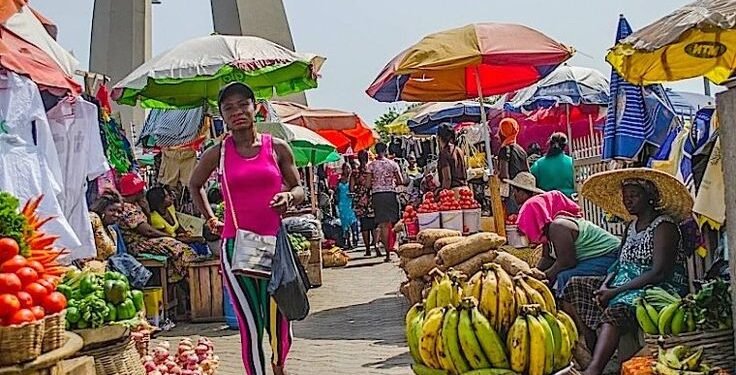In a strong critique of the ruling government, Vice President of IMANI Centre for Policy and Education, Selorm Branttie, has drawn attention to the challenges private businesses in Ghana face during current economic difficulties.
Selorm Branttie’s statements highlighted the neglected struggles of businesses grappling with severe financial strains, contrasting their challenges with the government’s focus on educational programs that lack corresponding economic support.
“If you tendered and won a contract worth -GHC 200,000 3 months ago, and you borrowed $10k to complete it, today, or you had to buy inputs worth that amount from abroad, if you have to pay back, you will pay 20,000 cedis more just because of the dollar, minus interest.”
Selorm Branttie, Vice President of IMANI Centre for Policy and Education
According to him, this example points to the unstable economic climate worsened by currency depreciation, where the cedi has significantly lost value against the dollar, driving up costs for businesses that rely on imported goods.
The IMANI Vice President expressed disappointment over what he viewed as the government’s disregard for the struggles of private businesses.
“But we have been silenced to avoid discussing how much private businesses are losing due to this economic mess,” Selorm Branttie remarked, expressing a sentiment of suppression within the business community as they navigate these difficult conditions.
Businesses Facing Losses
He pointed out the gap between political discourse and the harsh economic realities confronting the private sector, noting that businesses are “facing losses day after day and not even breaking even.”
His statements implied that the economic crisis’s impact extends beyond public-sector accomplishments and social initiatives like free education, showing that the private sector, the main driver of the national economy, is left unsupported and without solutions.
His criticism became sharper as he challenged the narrative surrounding government successes, specifically the emphasis on free education, saying “But today they expect us to stay quiet and applaud children going to school for free.”
He acknowledged that while free education is beneficial, it does not help private business owners struggling to maintain operations. He posed a direct question: “How does free schooling ensure I can pay my office rent, payroll, utility bills, taxes, car fuel, house rent, and buy clothes and supplies for the kids attending the free school?”
His remarks underscored a disconnect between government priorities and the economic realities faced by many Ghanaians.
While social initiatives like free education are celebrated in political spheres, Selorm Branttie questioned what support systems exist for businesses managing currency volatility, operational costs, and rising expenses in a fragile economy.
He concluded with a thought-provoking comment on the effectiveness of public discourse and media in addressing these economic problems. “Are captions and headlines enough to solve our issues?”
This rhetorical question underscored his belief that media coverage and discussions focusing on political achievements are inadequate when practical economic solutions and a comprehensive strategy for the private sector’s survival are missing.
Selorm Branttie’s statements serve as a call to policymakers to balance social welfare programs with measures that address the needs of private businesses, which are crucial for economic stability.
His words underscored the need for a more inclusive economic approach—one that acknowledges the link between social policies and private-sector health for sustainable national development.
READ ALSO: Gold Fields, AngloGold Ashanti JV Faces Delays as Government Approval Lags























